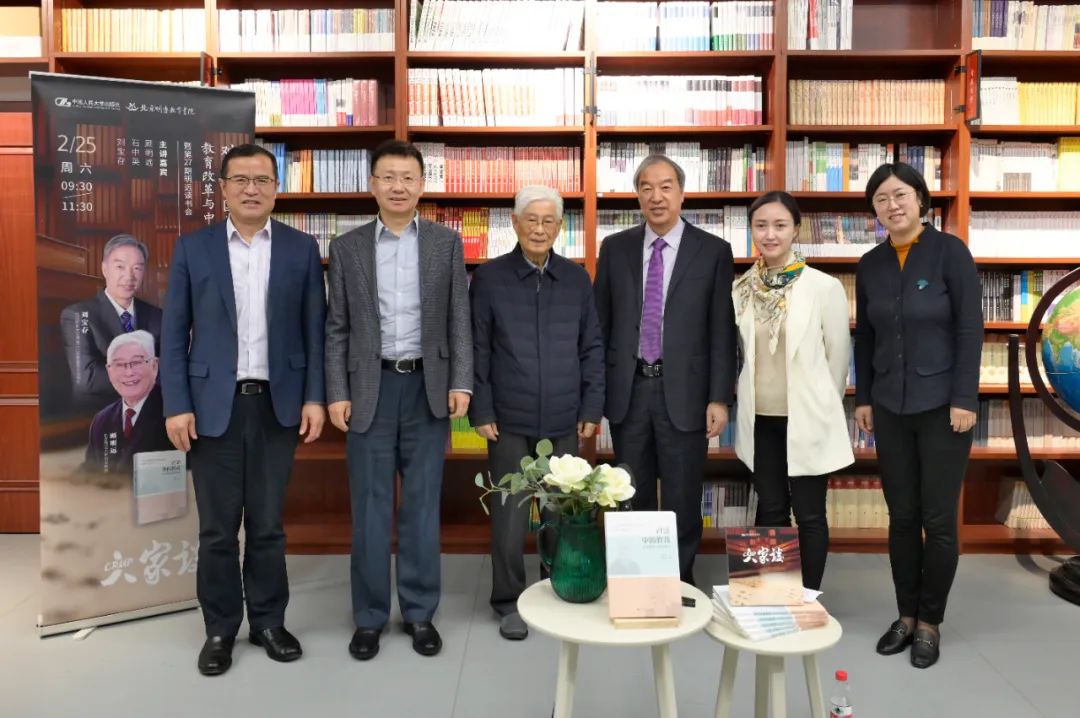On February 25, 2023, the "Education Reform and Chinese Modernization" academic seminar co-sponsored by China Renmin University Press and Beijing Mingyuan Education Academy held offline and online. More than 30 platforms such as China Teacher News, CCTV, China Education 30 Forum broadcast live simultaneously, with over 8 million views across the network.
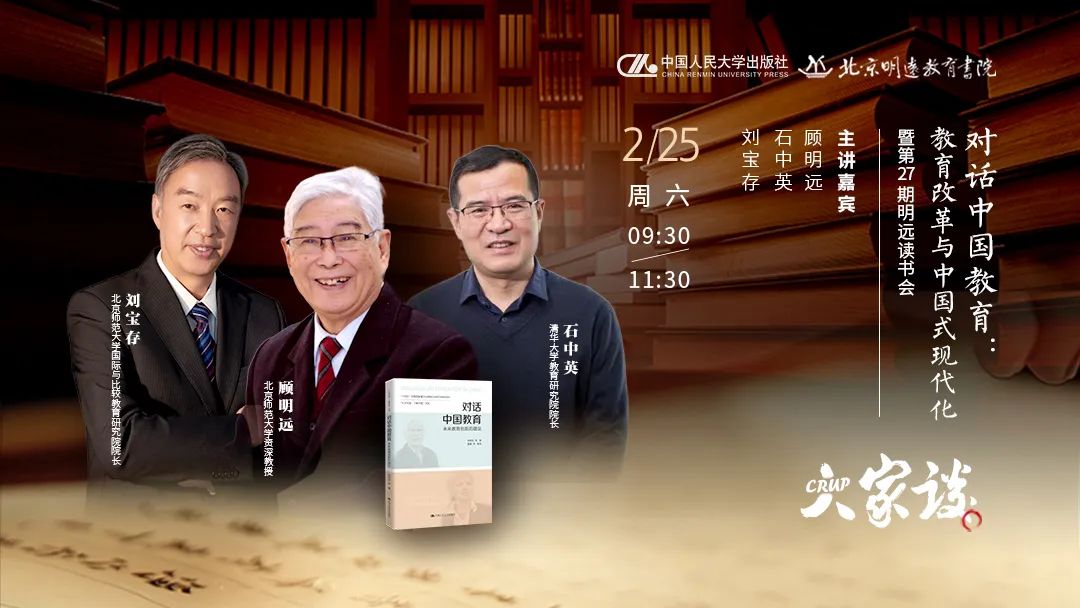
The seminar was attended by IICE senior Professor GU Mingyuan; Professor SHI Zhongying, dean of the Education Research Institute of Tsinghua University; and IICE Professor LIU Baocun. IICE Professor TENG Jun served as the guest dialogue host.
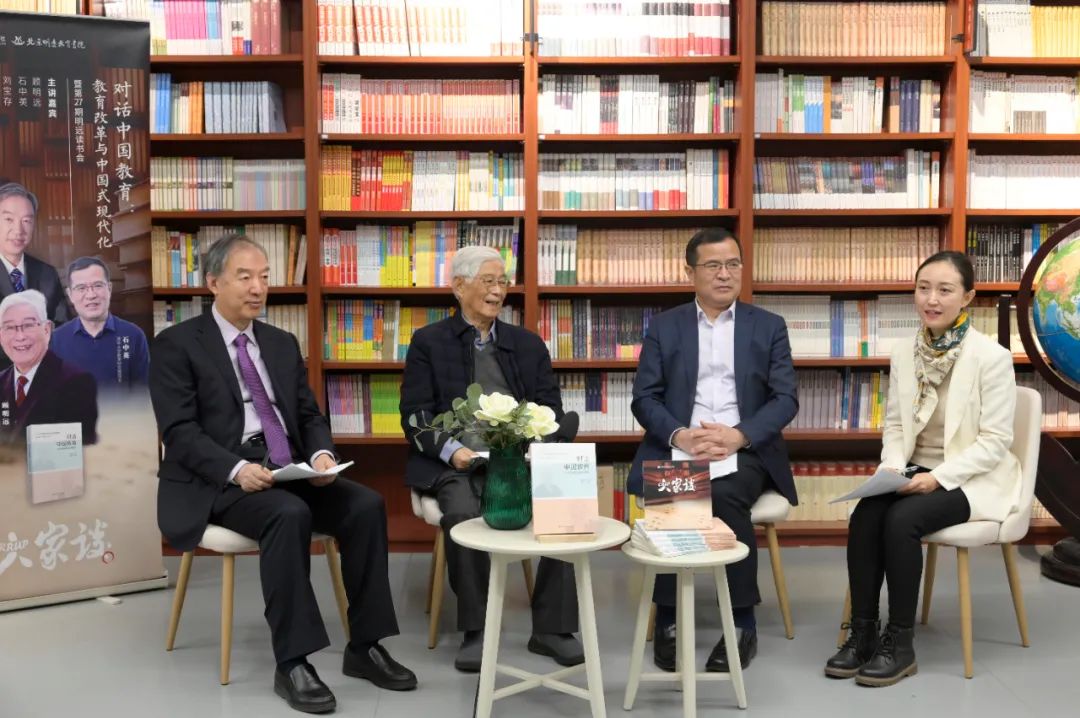
At the opening ceremony, GUO Xiaoming, deputy editor-in-chief of China Renmin University Press, represented the organizing committee to welcome the guests and readers and thanked Professor Gu for his strong support for China Renmin University Press in inheriting the red gene and deepening education publishing. He also emphasized that China Renmin University Press would further closely follow the dynamics of the academic community, explore more excellent academic achievements, cultivate brands, publish more excellent books, serve national strategic development, and serve readers.
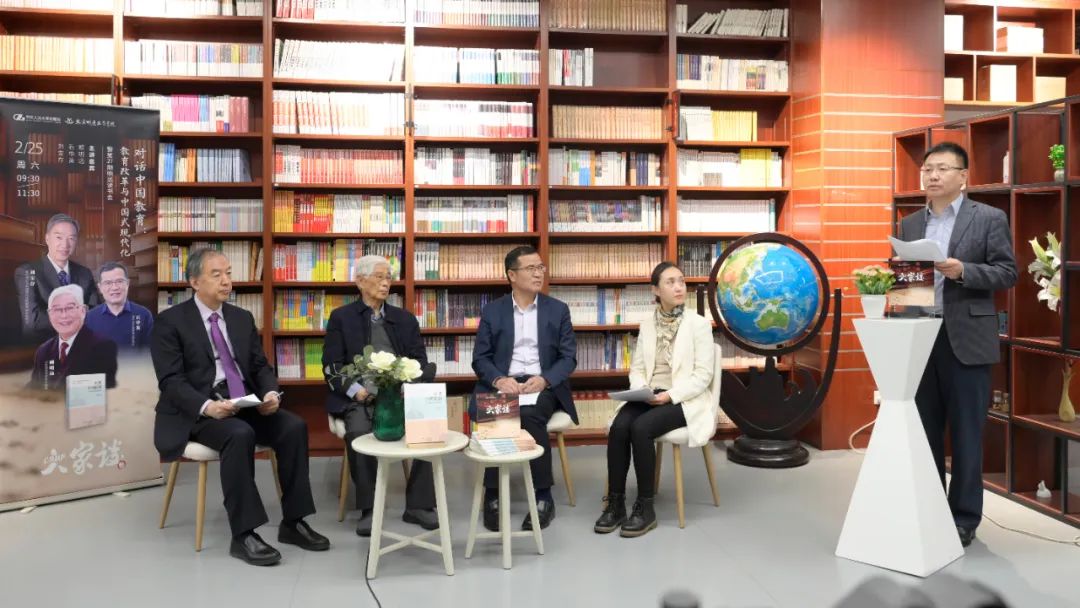
Professor GU Mingyuan first shared an excerpt from Dialogue on Chinese Education that impressed him deeply. He believed that the most prominent feature of Dialogue on Chinese Education is equal, cross-cultural and cross-national dialogue. This book collects in-depth dialogues with famous scholars from Finland, the United States, Japan, Ukraine, Canada and the United Nations. The scholars include education scholars from various countries around the world as well as scholars in management, economics and other fields. Precisely because education is an international phenomenon, we must listen to the opinions of experts from various countries, especially on some fundamental issues and hot issues of education in the new era. At the same time, we must also introduce our new concept of Chinese education to the international community, conduct equal dialogue and exchange, and provide multiple blueprints for world education.
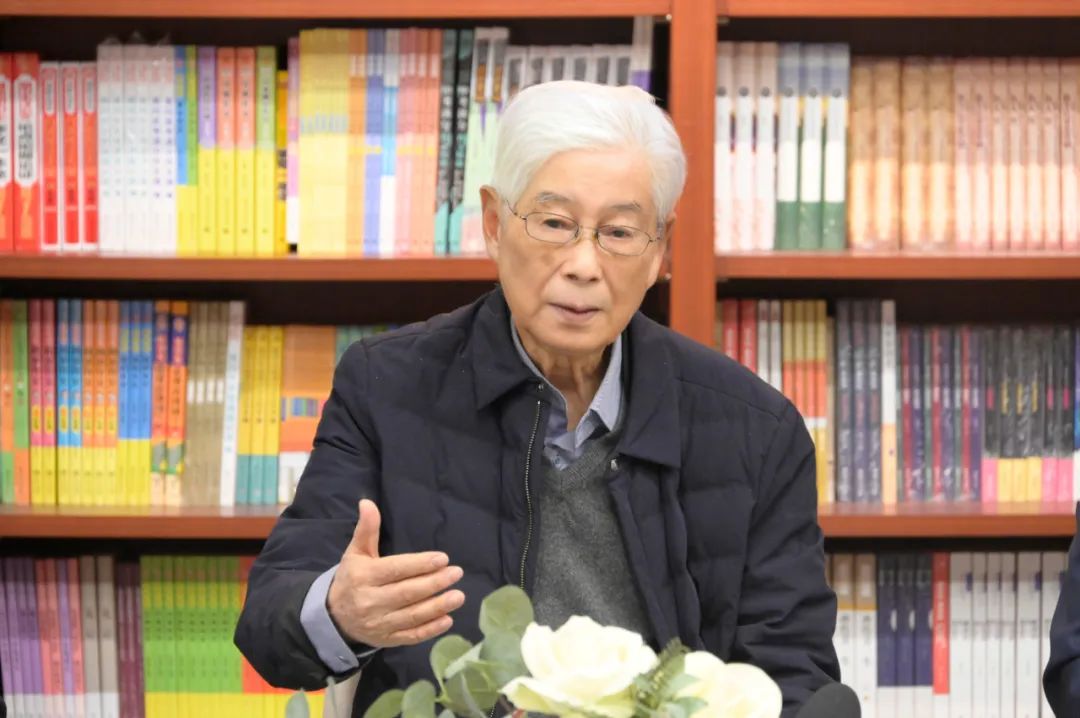
Education is the work of the future, and future education depends on future generations. Students are the new forces for achieving the second centenary goal and the great rejuvenation of the Chinese nation. And generation after generation is changing, with their thoughts, feelings and other aspects different from the past. Therefore, education must continue to reform and innovate. Professor GU hoped that everyone will pay more attention to China's education, come together to care for the development of the next generation, and care for our future.
As the first batch of readers of this book, Professor SHI and Professor LIU also shared excerpts from the book that impressed them deeply and introduced readers to the most striking features of this book.
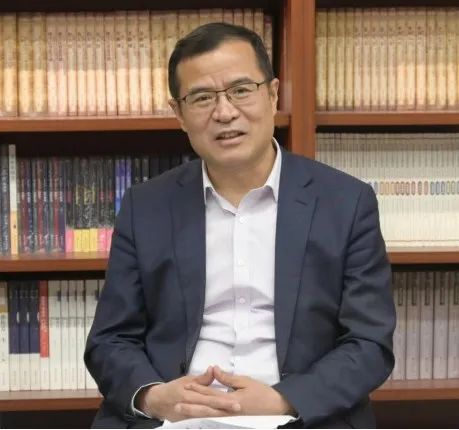
Professor SHI said he had been looking forward to reading this book for a long time, so as soon as he got the advance copy from the publisher, he read it through in one sitting. He was moved by the educational insights, passion and responsibility shown by the speakers in their dialogue. In describing the key features of this book, Professor Shi Zhongying summarized them in three words: high-end, sincere and insightful.
The speakers in the dialogue did not limit themselves to discussing education, but would often analyze issues from a broader historical, cultural and economic perspective, making it easy for readers to broaden their thinking. At the same time, the book provides deep insights. Each dialogue in the book recorded the true character of each speaker, grasped the real issues of actual education, and expressed their genuine views. The views expressed by scholars in the dialogue were all full of wisdom, innovation and inspiration.
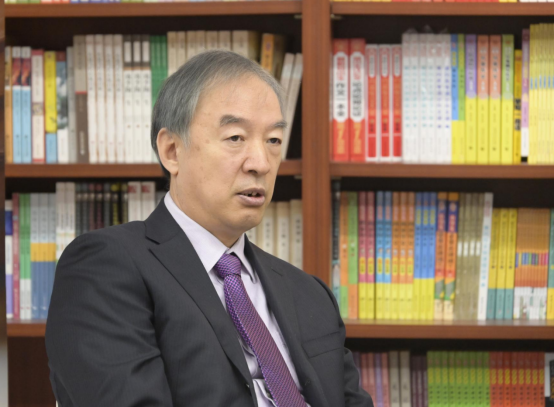
Professor LIU specifically mentioned four points that impressed him the most in the book: First, Professor GU always required putting students in a primary position in dialogue, and the purpose of education is to allow students to grow up, not to treat students as gramophones. The role of teachers is to inspire students and allow them to think and develop on their own. Second, he said in the book that the essence of education is to improve people's quality of life and life value. Education should be comprehensive. In the process of educating and cultivating people, it is not only required for students to have knowledge and skills, but also to have cultural cultivation and rich spiritual life. Third, Professor GU strongly emphasized that education should be personalized, students are diverse, and differences should be considered in the process of education. Fourth, in the book, he particularly emphasized that teachers should act as designers, designing suitable development environments for students, and also as guides, guiding students' future development.
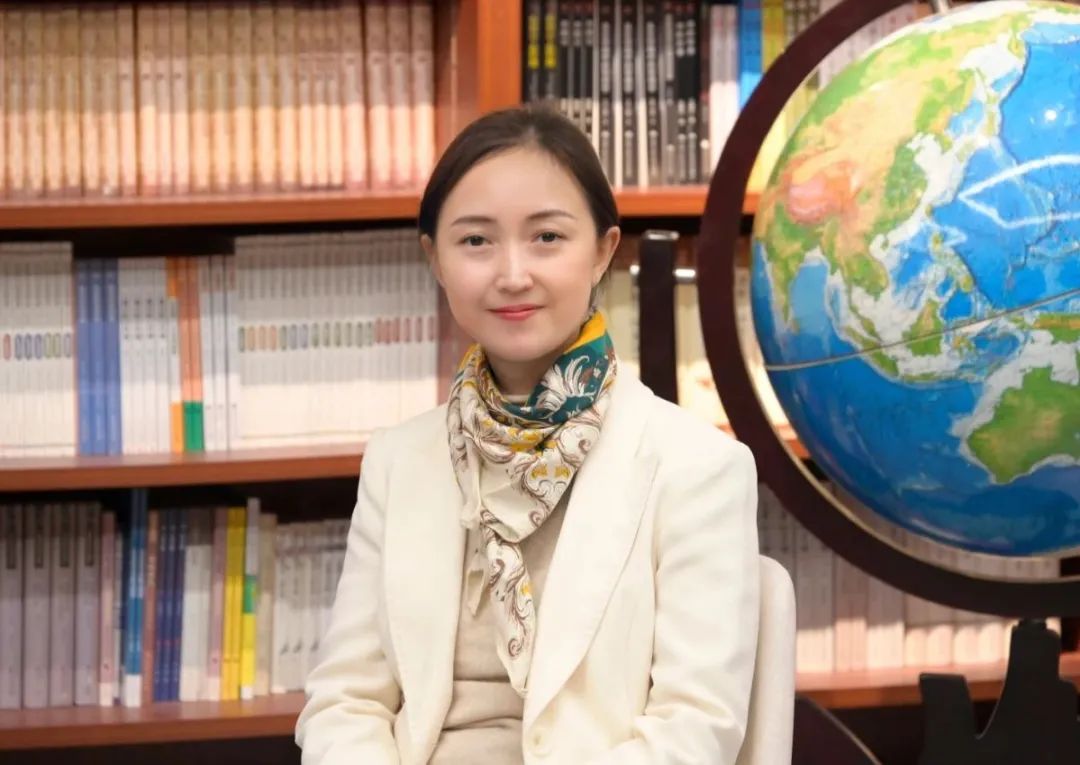
Professor TENG Jun, as the compiler of Dialogue on Chinese Education, deeply felt Professor GU 's adherence to the original intention of education, deep cultivation of educational soil, and the qualities of a "great man" with a vision of "the greatness of the state" in compiling the dialogue. She said one of the most moving passages in this book was the discussion between Ms. KAYA and Professor GU on the spiritual world of children: "We see children differently from seeing an instrument. It's seeing, but that seeing is very different. What you see of an instrument is an objective existence, but when you see a child, you have to see his whole heart, his whole spiritual world."
Equal dialogue plays an important role in building a high-quality education system and promoting the modernization of Chinese education. Guests all believed that China's modernization has put forward new and higher requirements for education, and education plays an increasingly important role in assisting the process of China's modernization. It is actively participating in global educational governance, telling a good story of China, and contributing Chinese wisdom. This book has played a very good exemplary role.
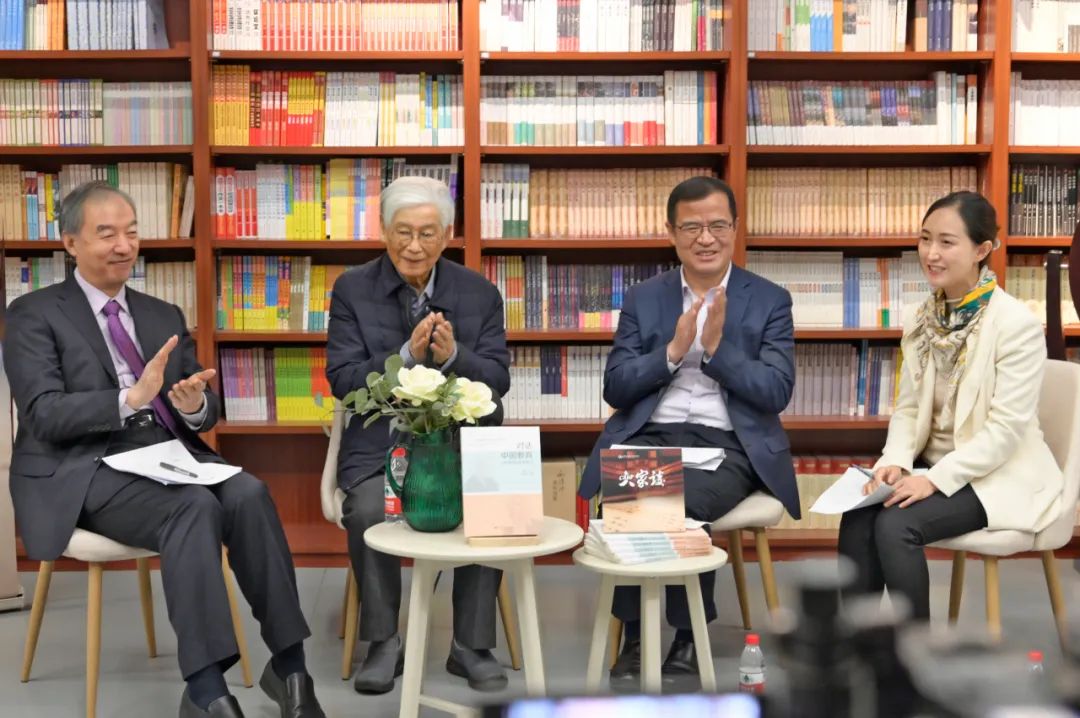
Where is the key technology for telling a good story of Chinese education? A paragraph from Mr. TANG Qian, former Assistant Secretary-General of UNESCO, answered this question in the preface: "First of all, Chinese people need to learn to see the world equally, learn to have equal dialogue and communication with the world, learn to patiently listen to others' ideas and opinions, learn to speak clearly in a language that others can understand and accept, and learn to speak calmly and peacefully with a way of thinking that others can accept. " The perspective Professor GU takes in this collection of dialogues is precisely a level-headed perspective that sets a good example for the Chinese education community to tell the story of Chinese education to the world.
